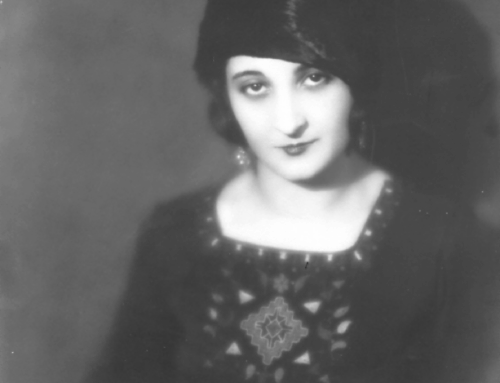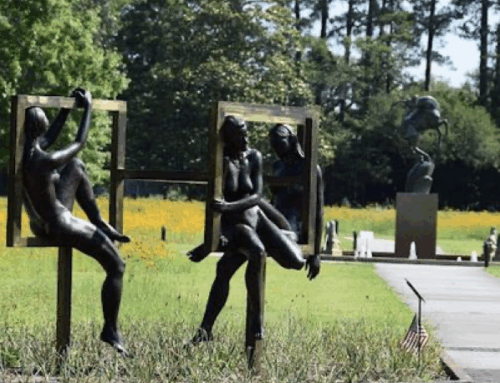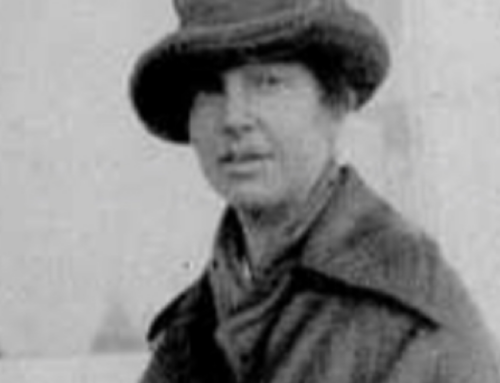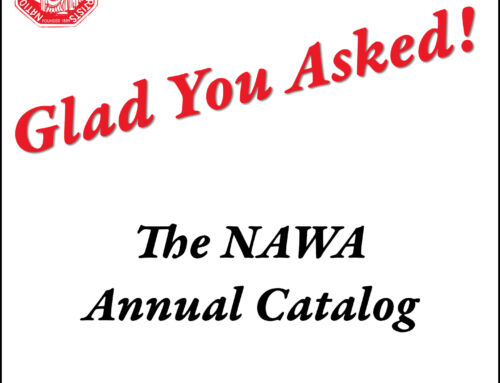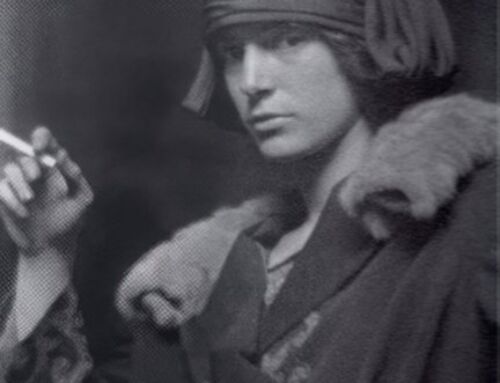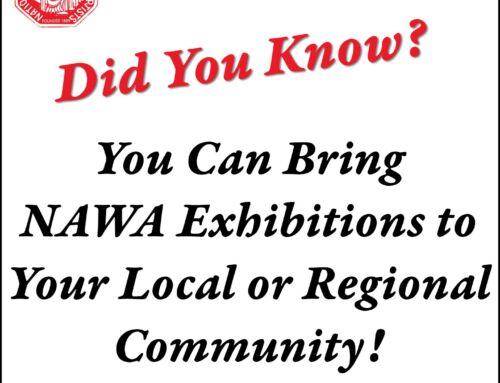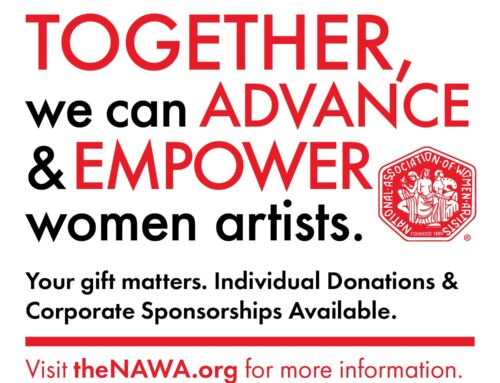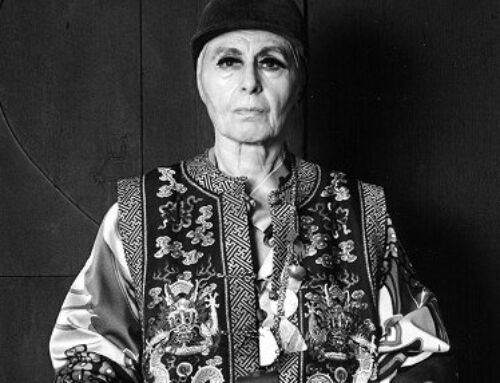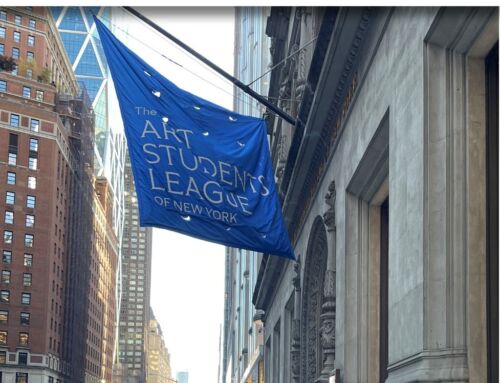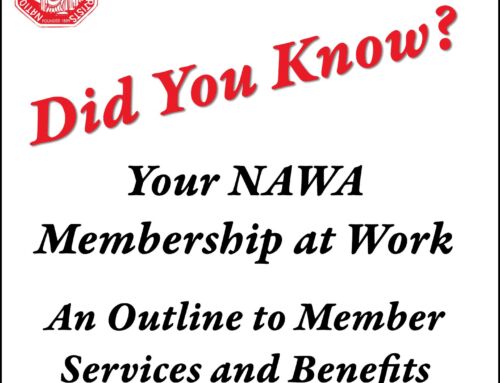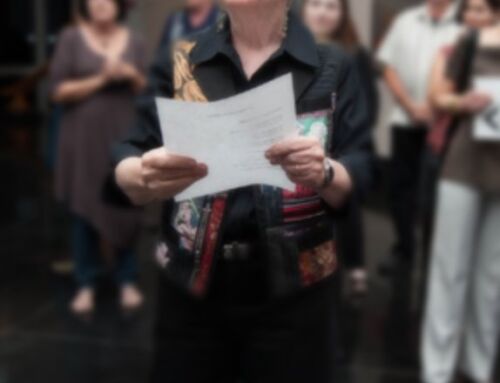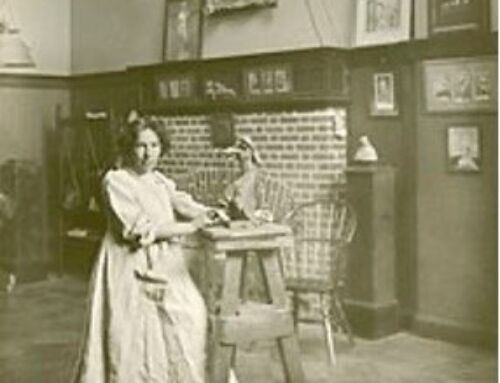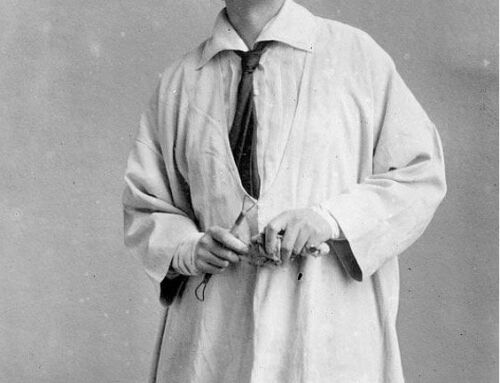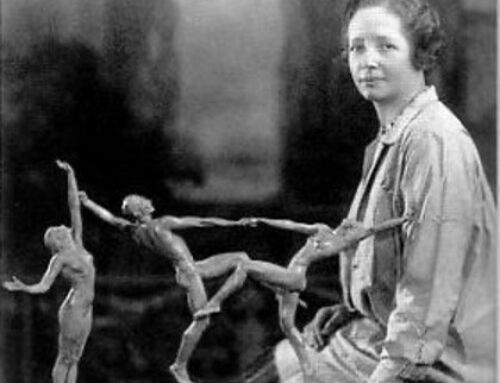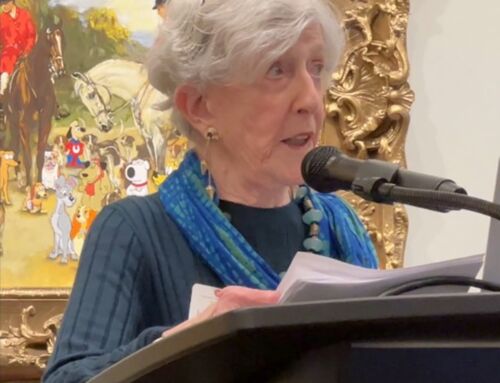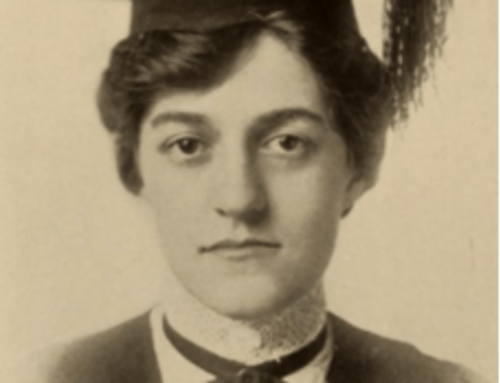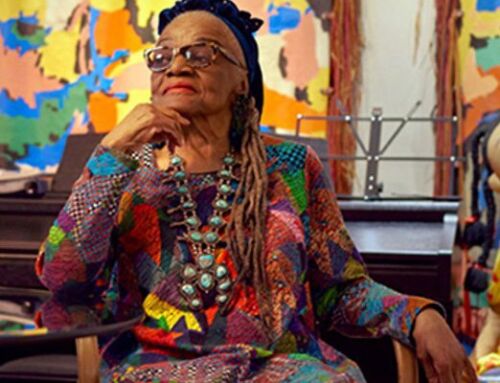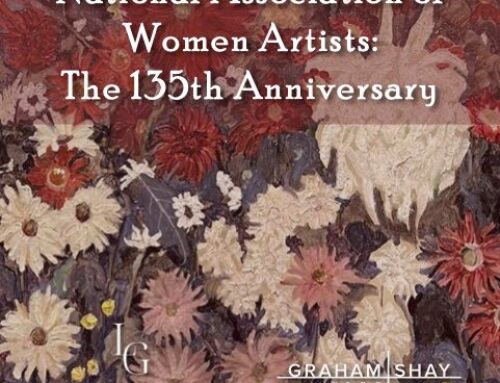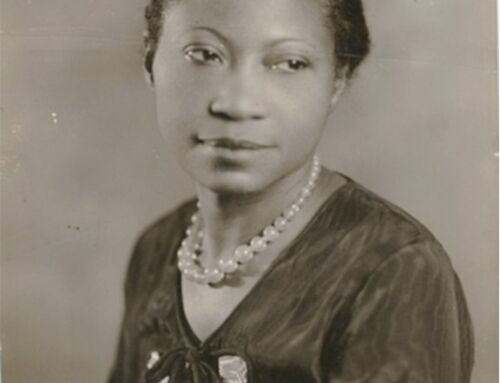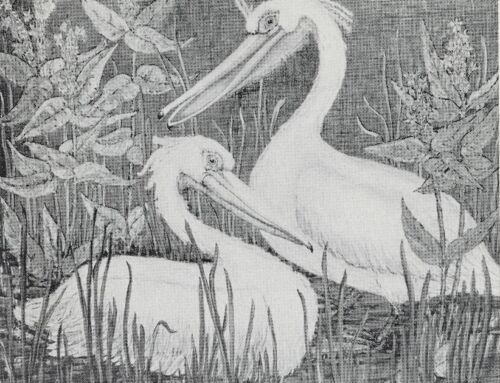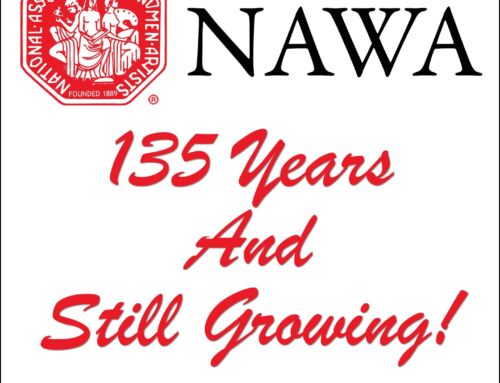Meet Meredeth Turshen a Signature NAWA Artist/Author

Meredeth Turshen. NAWA Artist/Author
Some of our NAWA Signature Artists are also recognized authors who have published their work in books, articles, and papers both online, and offline. Their writing is as diverse as their artwork, covering fiction, non-fiction, academic research, poetry, children’s books and more.
A standard set of questions has been proposed to each of our Artist/Authors. These are Meredeth’s replies. Don’t forget to see her publication list at the end of this questionnaire.
NAWA is pleased to introduce Meredeth Turshen.
1, What are you focused on in your writing?
My interests include women’s health, public health policy, and women and war, with a special focus on African affairs.
2. What drew you to the subject matter of your work?
My first job out of college was as speech writer for the Afghan Mission to the United Nations. That led to a career, first at UNICEF in NY then at WHO in Geneva where I worked in maternal and child health, mostly concerned with African women. Doctoral fieldwork took me to Tanzania and my first book, The Political Ecology of Disease in Tanzania. The issues are compelling, and my research took me all over the world.
3. What type of writing do you do? Fiction, non-fiction, sub-sections, etc.
Academic non-fiction.
4. Who are you writing for? Who is your target audience?
I write for academics—students and teachers—around the world.
5. Is your written work related to your artwork? If so, How?
Not ever, though I did a couple of times persuade publishers to use my drawings as covers for my books.
6. How often do you write?
Daily.
7. How do you balance your writing with your studio practice?
When I was teaching (I’m now retired) I set aside days when I was in the studio and did no academic work. In addition, I found time to participate in exhibitions which, as you know, require lots of preparation. I’ve been active in a couple of artist-owned (cooperative) galleries. (I don’t need a lot of sleep 😊).
8. When did you write your works?
Not sure what you mean. When deadlines loom, almost constantly.
9. Are you currently writing articles or books for publication?
My latest project is a catalog of my artwork in which I have written long paragraphs about the images, techniques, and inspiration. I’d be happy to send you a copy (pdf by email attachment).
10. How and where have your works been published? Online? Print?
Almost all my work is in print, but now libraries are online. In addition, I subscribe to two services (Researchgate and Academia.edu) which make academic articles freely available to people all over the world.
11. Do you self-publish your writing?
No.
12. How do you market your written work?
Publishers do the marketing.
13. Do you do book readings? Promo tours? Library lectures?
Since my work is academic non-fiction, most of my speaking about my research has been by invitation to universities and to conferences in the US and abroad.
14. Where can people access your publications? Links? Libraries? Etc.
My books are for sale through publishers, libraries, bookstores, etc. Articles can be accessed through libraries and Researchgate and Academia.edu.
15. In a few sentences tell us who and why people might feel compelled to read your publications.
As a member of several progressive, innovative and ground-breaking groups, I’ve been at the vanguard of new ideas and theories about health care, women’s issues, and political ecology. People interested in these subjects turn to my work for insights and original interpretations of, for example, what happens to women in war time. My books and articles are used in university courses and are quoted by other authors in their own written work.
Following is a list of Meredeth’s publications:
Books by Meredeth Turshen
Gender and the Political Economy of Conflict in Africa: The Persistence of Violence. London: Routledge, 2016 (paperback edition, 2017)
African Women: A Political Economy, edited by M. Turshen. New York: Palgrave Macmillan, 2010
Women’s Health Movements: A Global Force for Change, by M. Turshen. New York: Palgrave Macmillan, 2007, 2020 second edition
The Aftermath: Women in Post-conflict Transformation, edited by S. Meintjes, A. Pillay and M. Turshen. London: Zed Books, 2002
- Turshen, ed. African Women’s Health. Princeton: Africa World Press, 2000
- Turshen. Privatizing Health Services in Africa. New Brunswick: Rutgers University Press, 1999
- Turshen & C. Twagiramariya, eds. What Women do in Wartime: Gender and Conflict in Africa. London: Zed Books, 1998. French edition Ce que font les femmes en temps de guerre : genre et conflit en Afrique, collection dirigée par M. Turshen et C. Twagiramariya (translated by L. Arcal) Paris: L’Harmattan, 2001
- Turshen & B. Holcomb, eds. Women’s Lives and Public Policy: The International Experience. Westport, CT: Greenwood, 1993
- Turshen, ed. Women and Health in Africa. Trenton: Africa World Press, 1991.
- Turshen. The Politics of Public Health. New Brunswick: Rutgers University Press, 1989
- Turshen. The Political Ecology of Disease in Tanzania. Rutgers University Press, 1984
Book Chapters
Feminist Health Movements, Companion to Feminist Studies, edited by Nancy Naples, 393-410. (Hoboken: Wiley, 2021). With Marci Berger.
Violence against women in the new African wars, in War and Sexual Violence, edited by Frank Jacob and Sarah K Danielsson (Paderborn, Germany: Schöningh; Chicago: University of Chicago Press), 2019.
“Violence against women in war economies” in In Plain Sight: Sexual Violence in Armed Conflict, edited by Gaby Zipfel and Regina Mühlhäuser. New Delhi: Zubaan, 2019. German translation, Vor aller Augen. Sexuelle Gewalt in bewaffneten Konflikten, 2021 Hamburger Edition (https://www.hamburger-edition.de/).
The World Health Organization and the Ebola epidemic, Meredeth Turshen and Tefera Gezmu, in Understanding West Africa’s Ebola Epidemic: Towards a Political Economy, edited by Ibrahim Abdullah and Ismail Rashid, pp. 244-262. London: Zed Books, Oct. 2017.
Algerian Adolescents Caught in the Crossfire, in Violence and gender in the globalized world: the intimate and the extimate, edited by V.G. Julie Rajan and Sanja Bahun-Radunovic, pp.75-90. Aldershot (UK): second edition 2015.
The Political Economy of War: What Women Need to Know, in Sexual Violence in Conflict and Post-Conflict Societies: International Agendas and African Contexts edited by Doris Buss, Joanne Lebert, Blair Rutherford and Donna Sharkey, pp. 28-40. London: Routledge, 2014.
Political and Social Violence: Health Effects, Reference Module, in Earth Systems and Environmental Sciences, Elsevier, 2014. 05-Feb-14 with Dona Schneider doi: 10.1016/B978-0-12-409548-9.09048-5; http://www.elsevier.com/locate/permissionusematerial
Food insecurity: The impact on African women and children, in Gendered Insecurities, Health and African Development, edited by Howard Stein and Amal Fadlalla, pp. 117-130 London: Routledge, 2012
Political and social violence: health effects. 2011. In Encyclopedia of Environmental Health, edited by J.O. Nriagu, volume 4, pp. 623–630. Burlington: Elsevier. With Dona Schneider
Reproducing labor: colonial government regulation of African women’s reproductive lives, in The demographics of empire: The colonial order and the creation of knowledge, edited by Karl Ittmann, Dennis Cordell & Greg Maddox, Ohio University Press, 2010, pp 217-144
The political economy of women in Africa, in African Women: A political economy, edited by M. Turshen. New York: Palgrave Macmillan, 2010
What has happened in Africa since Cairo? In Markets and Malthus: Population, Gender and Health in Neo-liberal Times, edited by Mohan Rao and Sarah Sexton. New Delhi: Sage Publications, 2010.
Child Poverty: the Gender Dimension, in Child Poverty: African and International Perspectives, edited by J.E. Doek, A.K. Shiva Kumar, D. Mugawe, and S. Tsegaye. Antwerp: Intersentia, 2009.
The Political Economy of Violence against Women during Armed Conflict in Uganda, reprinted in Cultures of Fear: A Critical Reader, edited by Uli Linke and Danielle Smith, Pluto Press, London, 2009.
Algerian Adolescents Caught in the Crossfire, in Violence and gender in the globalized world: the intimate and the extimate, edited by V.G. Julie Rajan and Sanja Bahun-Radunovic, pp.75-90. Aldershot (UK): Ashgate, 2008, reprinted 2015
The Impact of Civil War on Women and Children, in Security, Reconstruction and Reconciliation: When the Wars End, edited by Muna Ndulo, 85-96. London” University College London Press, 2006
Definition and Injuries of Violence, in Interventions: Activists and Academics Respond to Violence, edited by E.A. Castelli and J.R. Jakobsen, 29-35. New York: Palgrave, 2004
Contested Claims and Individual Bodies, in Contested Terrains and Constructed Categories: Contemporary Africa in Focus, edited by G. C. Bond and N. Gibson, 365-378. Boulder, CO: Westview Press, 2002
Engendering Relations of States to Societies in the Aftermath, in The Aftermath: Women in Post-conflict Transformation, edited by S. Meintjes, A. Pillay and M. Turshen, 78-96. London: Zed Books, 2002
The Political Economy of Rape: An Analysis of Systematic Rape and Sexual Abuse of Women during Armed Conflict in Africa, in Victors, Perpetrators or Actors: Gender, Armed Conflict and Political Violence, edited by C. Moser and F. Clarke, 55-68. London: Zed Books, 2001
Women’s Mental Health, in African Women’s Health edited by M. Turshen, 83-106. Trenton: Africa World Press, 2000
Even Strong Backs Need Support: Introductory Notes, in African Women’s Health edited by M. Turshen, ix-xxv. Trenton: Africa World Press, 2000
The Ecological Crisis in Tanzania, in Dangerous Intersections: Feminist Perspectives on Population, Environment, and Development, edited by Jael Silliman and Ynestra King, 89-107. Boston: South End Press/ London: Zed Books, 1999
Rationalizing Health Care Provision in Zimbabwe: The Role of the Public Sector in Treating the Malaise of Inefficiency, in Development at a Crossroads: Uncertain Paths to Sustainability after the Neo-Liberal Revolution, edited by M. R. Carter, J. Cason, and F. Zimmerman, 105-128. Madison: University of Wisconsin Global Studies Program. 1998
Women’s War Stories, in What Women Do in Wartime: Gender and Conflict in Africa. London: Zed Books, 1998 (Turshen, M and C. Twagiramariya, eds.)
The Political Ecology of AIDS in Africa, in The Political Economy of AIDS, edited by M. Singer, 167-182. Amityville, NY: Baywood, 1997
US Aid to AIDS in Africa, in AIDS in Africa and the Caribbean edited by G. C. Bond, J. Kreniske, I. S. Susser, and J. Vincent, 181-188. Boulder, CO: Westview Press, 1997
African Women and Health Issues, in African Women South of the Sahara edited by M. J. Hay and S. Stichter, 239-249. London: Longman, 1995. Second edition
The Impact of Economic Reform on Women’s Health and Health Care in Sub-Saharan Africa, in Women in the Age of Economic Transformation: Gender Impact of Reforms in Post-socialist and Developing Countries, edited by N. Aslanbeigui, S. Pressman, and G. Summerfield, 77-94. London: Routledge, 1994
Prescription de contraception aux femmes immigrées en France (with H. Bretin and A. Thébaud-Mony), in Population, reproduction, sociétés: perspectives et enjeux de démographie sociale, edited by D. D. Cordell et al., 217-234. Montréal: Les Presses de l’Université de Montréal, 1993
Migration, Public Policy and Women’s Experience (with H. Bretin and A. Thébaud-Mony), in Women’s Lives and Public Policy: The International Experience, edited by M. Turshen and B. Holcomb, 83-96. Greenwood Press, 1993
Taking Women Seriously: Toward Democratic Health Care in Africa, in Women and Health in Africa, edited by M. Turshen, 205-220. Africa World Press, 1991
Gender and Health in Africa, in Women and Health in Africa, edited by M. Turshen, 107-123. Africa World Press, 1991
Introduction, in Women and Health in Africa, edited by M. Turshen, 1-14. Africa World Press, 1991
Is AIDS Primarily a Sexually Transmitted Disease? In Santé publique et maladies à transmission sexuelle, edited by N. Job- Spira, B. Spencer, J.-P. Moati, and E. Bouvet, 345-349. Paris: John Libbey Eurotext, 1990
The Struggle for Health, in The Imperiled Economy, edited by W. James, et al., volume 2, Through the Safety Net, 209-216. NY: Union for Radical Political Economics, 1988
Population Growth and the Deterioration of Health: Mainland Tanzania, 1920-1960, in African Population and Capitalism: Historical Studies, edited by D. D. Cordell and J. W. Gregory, 187- 200. Boulder: Westview Press, 1987; republished Madison: University of Wisconsin, 1994.
Food and Hunger in Ciskei, in World Recession and the Food Crisis in Africa, edited by Peter Lawrence, 275-282. London: James Currey, 1986
The Study of Women, Food, and Health in Africa, in Third World Medicine and Social Change: A Reader in Social Science and Medicine, edited by John H. Morgan, 241-251. Washington, D.C.: University Press of America, 1983
Health, and Hunger, in Reading Lists in Radical Social Science, edited by M. Maier & D. Gilroys, 173-179. New York: Monthly Review Press, 1982
Psychological Aspects of Contraception, in Society, Stress and Disease, edited by L. Levi. London: Oxford University Press, 1978(3):116-125 (With Lars Engstrom)
Maternal and Child Health Around the World, in MCH Practice, edited by H. M. Wallace et al., 1301-1324. Springfield, IL: Charles Thomas, 1973 (with Franz Rosa)



